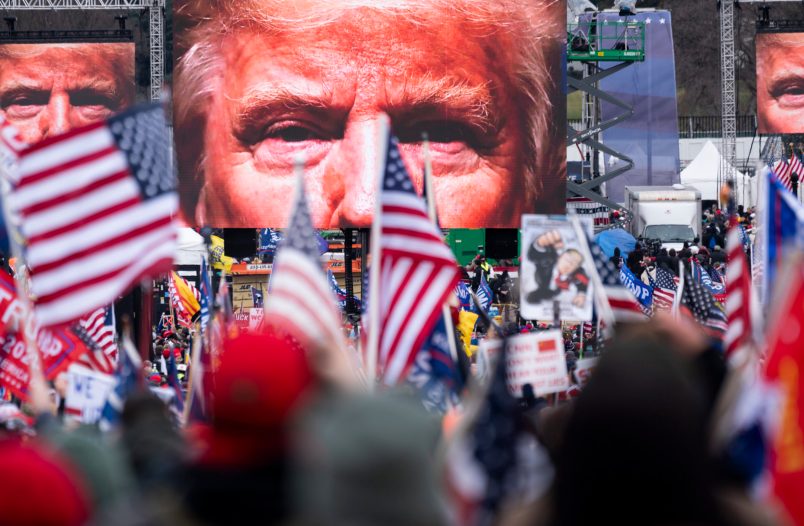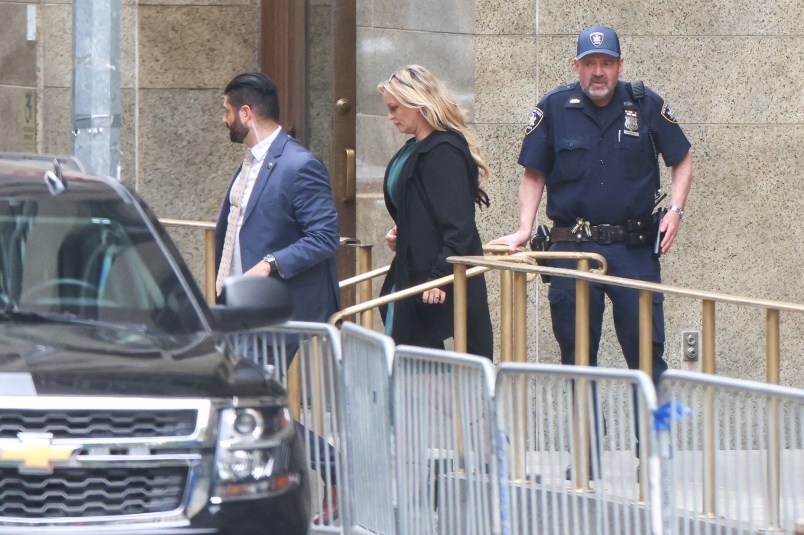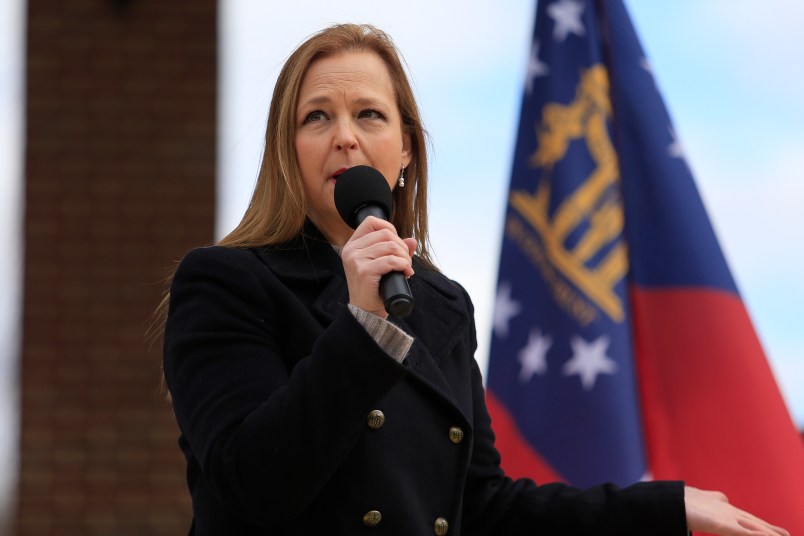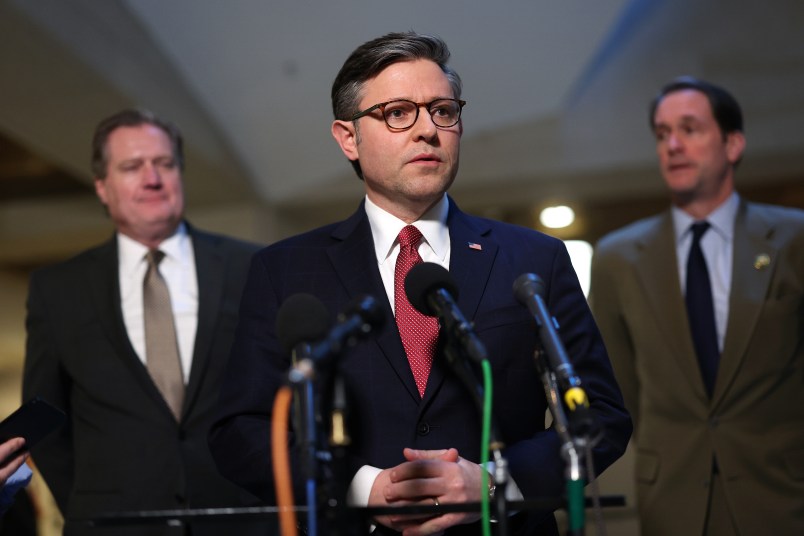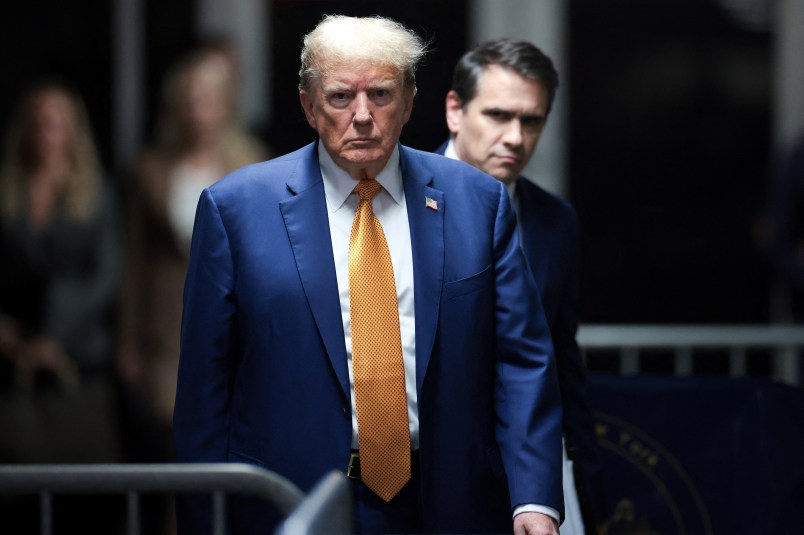Tuesday’s long-awaited ruling from the D.C. Circuit Court of Appeals roundly rejected Donald Trump’s claim that presidential immunity barred his Jan. 6 criminal trial from going forward.
Typically, someone in Trump’s position would have the option of asking the appeals court to rehear the case, or of going straight to the Supreme Court. In either case, they’d have a guarantee of a limited, but comfortable timeframe in which their district case would remain frozen pending further appeal.
But instead of doing that, the D.C. Circuit put a tight leash on what Trump can do next in a separate judgment Tuesday.
Per the circuit court, Trump has through Feb. 12 to appeal the case to the Supreme Court. If he doesn’t appeal to the Supreme Court, then the case will automatically return to the district court. But if Trump does appeal to the Supreme Court, then the stay will remain in place until the high court rules on whether to hear the case.
It gets more unusual when it comes to Trump potentially seeking a rehearing at the circuit court-level. Typically, the stay on the district court case would continue until the appeals court decides what to do with the request for a rehearing, an experienced appellate attorney told TPM. But in this case, per the D.C. Circuit order, Trump asking for rehearing will not stop the case from returning to the district court.
“This is definitely all about pushing the pace,” the litigator told TPM.
The schedule boxes Trump in; should he choose to file an appeal to the Supreme Court, he would have to do so in a time frame that, for the normally ponderous pace of appellate law, is lightning fast.
Trump has been fighting to slow down the D.C. Jan. 6 federal prosecution brought by Special Counsel Jack Smith, including via protracted examination of the claim at the center of Tuesday’s ruling: that presidential immunity and his acquittal at a February 2021 impeachment trial block any prosecution. A trial date of March 2024 that was set before the appeal began was scrapped last week as the D.C. Circuit considered the matter.
The D.C. Circuit timeline is “accelerated,” Eric Columbus, an attorney who handled appellate cases for the Jan. 6 Committee, told TPM.
“What Trump needs most of all from SCOTUS is a stay that would stop the proceedings,” Columbus wrote in an email. But Trump would need five Supreme Court justices to agree to that. Tuesday’s decision, chock full of historical data points appealing to justices who claim to take an originalist lens, seemed directed at discouraging a Supreme Court stay or even Supreme Court involvement at all, some legal observers speculated.
But there’s a second option here for Trump to cause further delay: Asking the full D.C. Circuit to rehear the case. That could have added weeks or months of delay before SCOTUS even gets a bite at the apple.
Typically, Trump would have 30 days to ask for the full D.C. Circuit to rehear the case, the seasoned appellate litigator told TPM. If he declined to take that option, or if the court denied the request for a rehearing, the case would return to the appeals court seven days later.
The D.C. Circuit panel Tuesday largely put the kaibosh on that by stating that, if Trump asks for a rehearing from the D.C. Circuit, then the case will automatically move forward at the district court. Per the judgment, those proceedings would continue unless the D.C. Circuit granted a rehearing, at which point the district court case would freeze again and return to the appellate level.
In effect, it gives Trump a tough trade: He can gamble for further delay by trying to keep the case at the appellate level via a rehearing, without going to SCOTUS. But he’d have to risk that gambit failing, and the clock on the district case beginning to tick again.
“They’re saying he has no automatic stay by filing a petition for rehearing en banc, as he normally would have under FRAP 41(a),” Steve Strong, an appellate lawyer, told TPM. “Skipping that saves considerable time in the remand.”
Under the typical D.C. Circuit rules cited by Strong, the appeals court grants stays as petitioners file requests for rehearings. The rules give judges the discretion to make exceptions.
“While these points aren’t routine they seem entirely correct here because the appeal was expedited,” Strong added.
Kate Riga contributed to this story.





